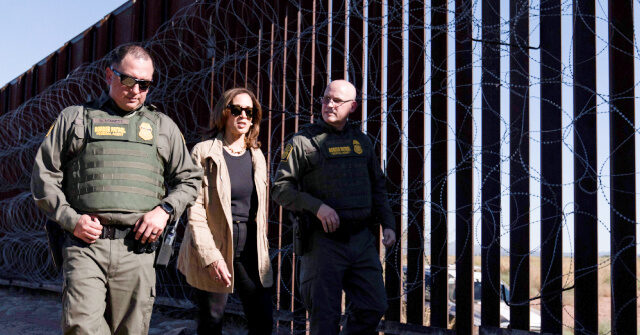During a recent CNN town hall event, Vice President Kamala Harris faced tough questions regarding her stance on the border wall, particularly in light of her past criticisms of the construction initiated by former President Donald Trump. Harris, who is a candidate for the 2024 Democratic presidential nomination, emphasized a pragmatic approach to complex policy issues, asserting, “I am not afraid of good ideas where they occur.” She asserted that Trump’s approach to the border wall was ineffective and did not amount to significant progress, suggesting that the wall only saw minimal actual construction during his presidency. She characterized Trump’s promises, particularly the claim that Mexico would pay for the wall, as unrealistic and underscored the failure of most of his proposed border measures.
Host Anderson Cooper probed further into the apparent contradiction between Harris’s previous denunciations of the wall and her current support for a bipartisan Senate bill that includes funding for it. He noted, “Is a border wall stupid?” to which Harris shifted the discussion back to Trump’s handling of the issue, emphasizing that among the scant wall built during his administration, much of it was constructed in areas that were already fortified during President Obama’s term. This highlighted her view that Trump’s border security measures were largely symbolic and not built on effective policy.
Cooper continued to push the vice president on the implications of endorsing a bill with funding earmarked for wall construction when Harris herself had previously criticized the wall as a misguided solution. In response, she reiterated her commitment to a comprehensive immigration reform bill aimed at addressing systemic issues with the country’s immigration processes, asserting that she would endeavor to work across party lines to advance legislation that strengthens border security. Her response indicates an intent to reconcile her past opinions with the current legislative realities by forming coalitions for pragmatic solutions.
Harris’s insistence on a bipartisan approach speaks to a broader Democratic strategy of seeking compromise in a politically divided landscape. She expressed a willingness to entertain varying solutions to border security, illustrating her commitment to engaging with ideas from both sides of the aisle. This tactic aims not only to appeal to moderates but also to present herself as a leader willing to prioritize practical governance over strictly adhering to partisan dogmas.
However, the conversation remained tense, with Cooper highlighting that the bill Harris supports involves a significant financial commitment to continue the wall’s construction, which could be seen as contradictory to her previous opposition. Harris defended this stance by emphasizing her broader goal of strengthening border security, arguing that employing certain measures that were deemed effective by others can lead to a more secure environment. This reflects a tactical pivot where she is willing to leverage established infrastructure while rectifying misconceptions about previous administrations’ approaches to immigration.
In sum, the CNN town hall highlighted Vice President Harris’s navigations through her previous criticisms while supporting a border security initiative that includes wall funding. Her focus on bipartisan cooperation and practical solutions illustrates the challenges Democratic leaders face in balancing progressive ideals with the necessity to address complex national issues like immigration and border security. Harris’s responses demonstrate an ongoing strategic approach to reconcile her past views with present governance challenges, calling attention to the practicalities of lawmaking amid an evolving political landscape.

